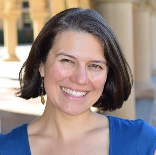IRES Seminar Series
Time: 12:30pm to 1:30pm (every Thursday)
Location: AERL Theatre (room 120), 2202 Main Mall
*********************************************************************************************
Rethinking the role of multilateral trade rules in 21st century food security
Abstract:
Before sharp increases in global food prices in 2007-2008, the dominant causal narrative explained food insecurity as the result of abundant but poorly distributed supplies. After the price shocks, the narrative shifted. Demand for food was presented as a threat that might overwhelm supply, in the context of natural resource scarcity and unstable markets. Food insecurity was attributed to failed social safety nets and a chronic lack of investment in agricultural production. Both food security narratives rely on international trade, yet they diverge on its relative importance and on the precise nature of its role. The new narrative changed priorities: governments implemented domestic policy reforms, creating new programmes and renewing investment in agriculture. They negotiated new international commitments. Trade rules were an obvious area for reforms that would reflect the new priorities. But governments failed to reform trade rules. Instead, food security became another bone of contention in the already paralyzed World Trade Organization negotiations. My thesis examines this paralysis. Based on interviews with diplomats, public speeches and policy documents, government negotiating texts, and the theory and analysis of legal scholars, economists, political scientists and philosophers, I assess the WTO’s fulfillment of its mandate as the institution of global governance charged with negotiating trade rules that uphold the international order, including the realization of food security.
Bio:

Sophia Murphy has 25 years of professional experience in international development cooperation. Her work started in multilateral advocacy, focused on the UN conferences that marked the 1990s, including two years in Geneva at the UN itself. From 1997, her work has focused on international trade agreements and their relationship to agriculture, food security and rural development. Most of her work has been with non-governmental organizations, though she has also consulted for government agencies and think tanks. Sophia returned to full-time studies in 2013 as a graduate student at IRES. She is serving a second concurrent term as one of 15 members of the international High Level Panel of Experts to the UN Committee on World Food Security. She is the Chair of the Board of Directors of ActionAid USA. She has lived and worked in Canada, Belgium, the United States, Switzerland, India and Australia and now lives in Squamish, BC.
__________________________________________________________________
Agri-‘culture’ and Biodiversity: Rethinking Payments for Ecosystem Services in light of agrarian values
Abstract:
Engagement of private agricultural landowners is essential to achieve many biodiversity and conservation objectives. Programs that compensate farmers partly or completely for conservation practices (e.g., payments for ecosystem services) are often employed to this end. Yet enrollment of farmers is a continuing challenge for many programs. I discuss a program focused on restoration of riparian areas in Washington State’s Puget Sound region. I examined how participation can be facilitated or hindered by differences in incentive program structure and rules with rural landowners’ values around landscape, place and nature. Using in-depth interviews of land owners and experts, we found key value differences around relationships to land and nature. For example, rules requiring ‘no touch’ riparian buffers clash with the ways that farmers and rural landowners often view their relationship to the land—one centered around active care and stewardship. Aligning conservation incentive programs with the environmental values of targeted participants could increase participation rates, protecting additional habitat and creating more wildlife friendly landscapes.
Bio:

Mollie Chapman is doctoral candidate at IRES and a scholar at the Liu Institute and the Public Scholars Initiative. Her research spans the natural and social sciences seeking to better understand the ways that the values of individuals and communities as well as understandings from the scientific world can better be integrated into environmental management, programs and decision making. Her current work focuses on innovate ways to shift food systems towards sustainability, looking at Payment for Ecosystem Services programs on agricultural lands in B.C., Washington State’s Puget Sound region and the Nicoya Peninsula in Costa Rica.
Mollie received her B.A. in Anthropological Sciences from Stanford University and a M.S. in Sustainable Development from the University of Basel in Switzerland. She has previously worked as a consultant for international tech start-ups, at Yellowstone National Park, and as a coordinator for NGOs in ecotourism and appropriate technology.
Photo credit: Edna Winti from flickr/Creative Commons
